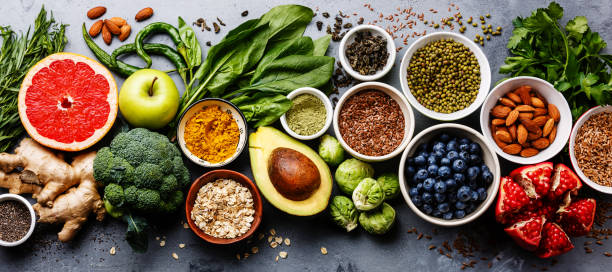Fuel Your Productivity: The Impact of Healthy Eating on Performance
When it comes to boosting productivity, the role of a well-balanced diet cannot be overstated. What you eat directly affects your energy levels, cognitive function, and overall well-being. Healthy eating isn't just about weight management; it's about providing your body and brain with the nutrients they need to operate at their best. In this article, we'll explore the connection between healthy eating and improved productivity and offer practical tips to help you fuel your potential.
The Relationship Between Diet and Productivity
Energy Levels: The food you consume serves as your body's primary source of energy. A diet rich in nutrients provides a steady supply of energy throughout the day, preventing energy crashes and fatigue.
Cognitive Function: Nutrient-dense foods support brain health, enhancing cognitive functions such as memory, focus, and problem-solving abilities.
Mood and Mental Health: Diet plays a crucial role in mood regulation and mental health. A balanced diet can reduce the risk of mood disorders and enhance emotional well-being.
Physical Health: Maintaining a healthy weight and reducing the risk of chronic diseases through proper nutrition can lead to fewer sick days and increased overall productivity.
Key Components of a Productivity-Boosting Diet
Balanced Macronutrients: Consume a balanced mix of carbohydrates, proteins, and healthy fats. Carbohydrates provide quick energy, proteins support muscle and tissue repair, and fats are essential for brain health.
Fruits and Vegetables: These are rich in vitamins, minerals, and antioxidants. Aim to fill half your plate with fruits and vegetables to ensure a wide variety of nutrients.
Lean Proteins: Incorporate lean sources of protein such as poultry, fish, beans, and legumes. Protein helps stabilize blood sugar levels and provides a sense of fullness.
Whole Grains: Opt for whole grains like brown rice, quinoa, and whole wheat bread. These provide sustained energy and fiber, which aids digestion.
Healthy Fats: Include sources of healthy fats like avocados, nuts, seeds, and olive oil. These fats support brain function and reduce inflammation.
Hydration: Proper hydration is essential for mental clarity and overall health. Aim for at least eight glasses of water a day.
Practical Tips for Healthy Eating and Improved Productivity
Plan Your Meals: Take the time to plan balanced meals and snacks in advance to avoid impulsive, less nutritious choices.
Eat Regularly: Don't skip meals, especially breakfast. Regular, balanced meals keep your energy levels stable throughout the day.
Limit Processed Foods: Minimize your intake of processed and fast foods, which are often high in unhealthy fats, sugars, and additives.
Mindful Eating: Pay attention to what you're eating. Eating mindfully can help you enjoy your food more and prevent overeating.
Snack Smart: Choose nutrient-dense snacks like yogurt, nuts, and fresh fruit instead of sugary or highly processed options.
Practice Portion Control: Be mindful of portion sizes to avoid overeating, and use smaller plates if it helps.
Listen to Your Body: Eat when you're hungry, and stop when you're satisfied. Avoid emotional eating or eating out of habit.
A healthy diet is not only essential for your physical health but also for your mental well-being and productivity. By fueling your body with the right nutrients, you can boost your energy levels, enhance cognitive function, and maintain a positive mood. Healthy eating is a powerful tool in your quest for improved productivity and a more fulfilling life. Remember that small, sustainable changes in your diet can lead to significant improvements in your overall well-being and performance. So, start today by making healthier choices, and watch as your productivity soars.



Comments
Post a Comment